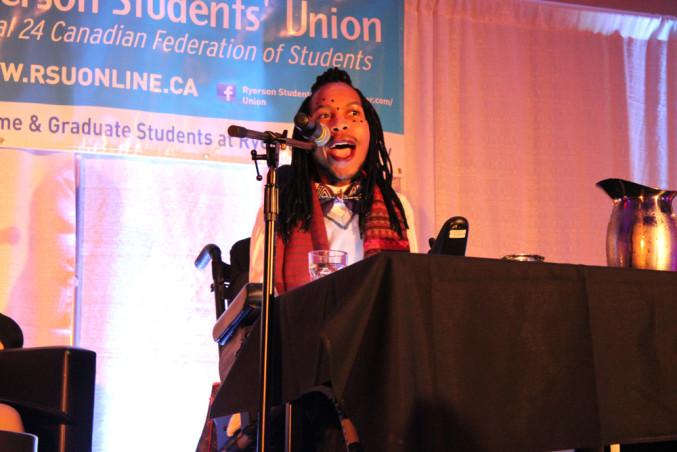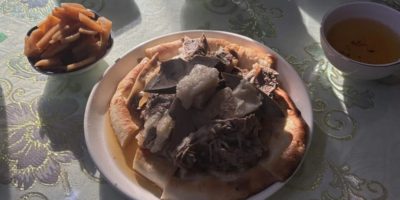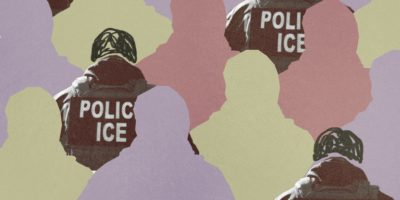By Leah Hansen
A descendent of several generations of Pentecostal ministers, Afi Browne said growing up in Trinidad and Tobago – where the criminal code prohibits same-sex sexual activities – made telling her parents she was gay “an awful yelling match.”
“I’ve heard this rhetoric a lot of times, that queer people are living in sin and going to hell,” Browne said. “This scared me a lot as a child because I was coming to terms with my queerness.”
Also feeling as though he never had any positive representations of gay and queer black people to relate to, president of the Ryerson Students’ Union Rodney Diverlus said that it is important to have spaces where people can feel safe sharing their stories.
“Oftentimes, when we’re in black spaces, we feel left out because we’re queer and trans, and when we’re in queer and trans spaces, we feel left out because we’re black,” he said.
The third annual Queering Black History Month event, that was held last Thursday, happens every year with the intention of reinserting the narratives of queer and trans African, black and Caribbean people back into the fabric of Black History Month.
“I thought, let’s queer up the month and talk about our lives, because our lives are so rich, our histories are so full and they’re never talked about or affirmed,” said Lali Mohamed, founder and co-coordinator of the event.
Diverlus said the lack of representation for queer and trans people during this month is because of the way in which history is communicated and its dependence on “whose stories are told and how they’re portrayed and how they’re passed on.” For Diverlus, this event allows for the histories and stories about queer and trans blacks – that are never usually discussed – to be heard.
“I think for many of us, as black queer people – and I’m sure for black trans people – there’s a sense of impossibility,” Mohamed said. “You don’t find yourself in the history books, you can’t see your images in the community centre and so an event like this really affirms people’s lives, and their experiences and their histories.”
For this year’s event, Mohamed chose to focus the discussion around youth and brought in Edward Ndopu, Juli Rivera and Browne as the panel of speakers to share their stories of affirmation, struggle and empowerment.
“I think it’s just very important because we’re kind of reclaiming black history,” said Phumi Mtetwa, a South African queer activist.
Over the last three years the event, which Mohamed had originally expected to draw in a small audience of about 30 at the most, has become overcrowded with people from all around the Ryerson community.
“It’s like coming home,” Mohamed said. “I feel like every year, I’m coming home to people, to stories, to energies, and it feels great.”












Leave a Reply